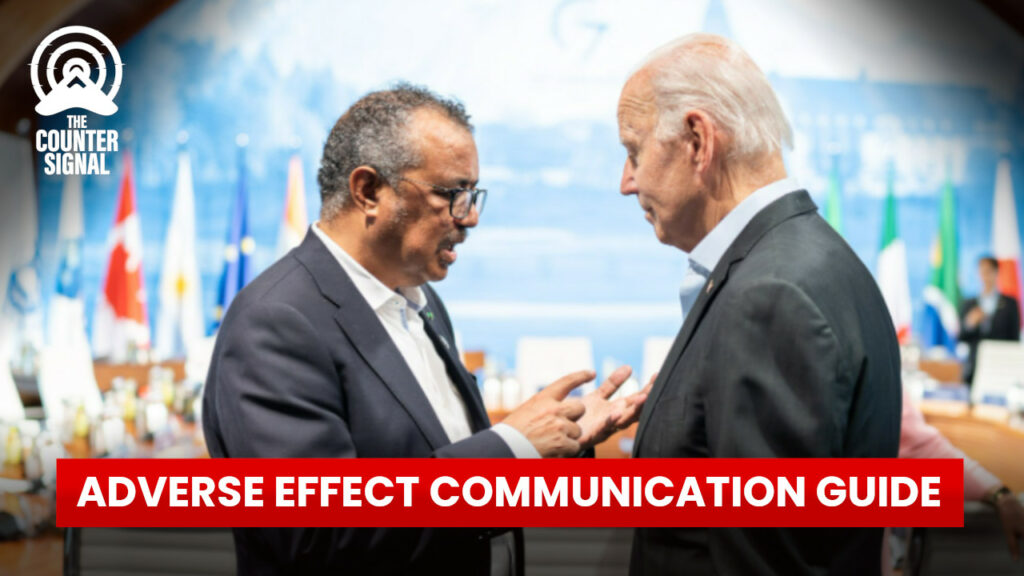The World Health Organization (WHO) has released a manual instructing governments on how to stem criticism over vaccines.

The step-by-step guide tells federal agencies how to explain emerging data and adverse effects to maintain vaccine confidence.
“This manual was developed to support countries in effectively responding to events which may erode the public’s trust in vaccines and the authorities that deliver them,” reads the abstract for the manual.
“It is crucial to be well prepared and have a mechanism in place to respond to vaccine-related events, which may, at any time, evolve into a crisis.”
Types of events the WHO covers include death after a vaccine, anecdotal stories on social media, critical media reports, and “new critical scientific studies.”
The guide suggests identifying key audiences so messaging can be effectively tailored. For example, audiences are divided by gender, age, and cultural or religious beliefs.
The manual gives one example of an infant dying from sudden infant death syndrome (SIDS) within 24 hours of being immunized at a local health centre.
“Preliminary evidence indicates no causal link between the death and the vaccine,” the example reads.
The WHO tells health agencies to respond by saying the vaccine is safe and effective and should be used to protect people from a given infectious disease.
“Messages should be short, concise, and evidence based.”
The guide further urges governments to maintain good relationships with the media to communicate messaging and “shape the narrative.”
“Know who will follow the conditions agreed upon and who shows fair and balanced views, and also which media outlets are followed and trusted by your key audiences.”
Last month, the Public Health Agency of Canada (PHAC) awarded a contract to Pulsar, a social media intelligence firm from the UK. The group will study and analyze “vaccine hesitant” Canadians’ social media comments to determine how to increase vaccine uptake.
“The consultant will analyze vaccine-related conversations, and their participants, on Twitter and social media channels, including Reddit, Blogs, Forums, and News, spanning up to three years of historical data,” reads PHAC’s website.









